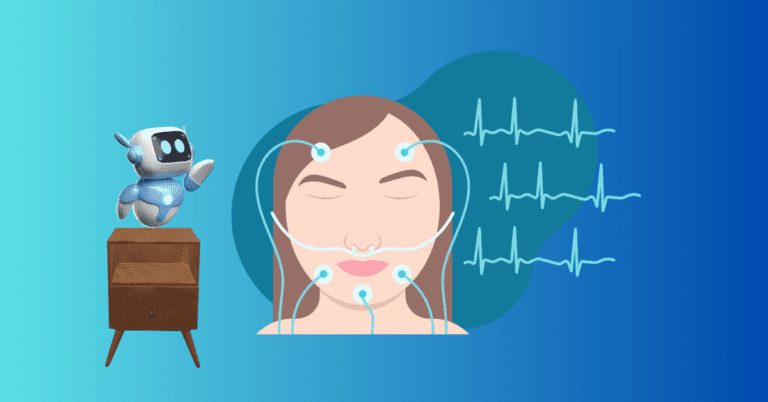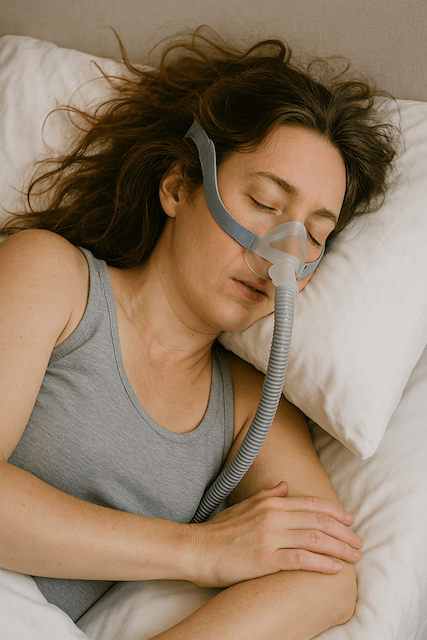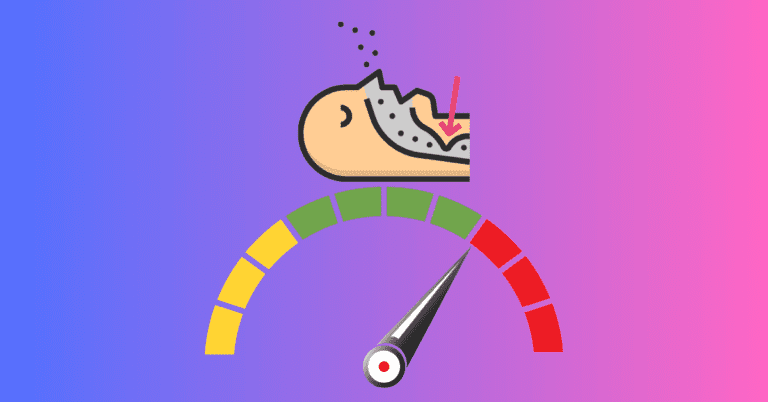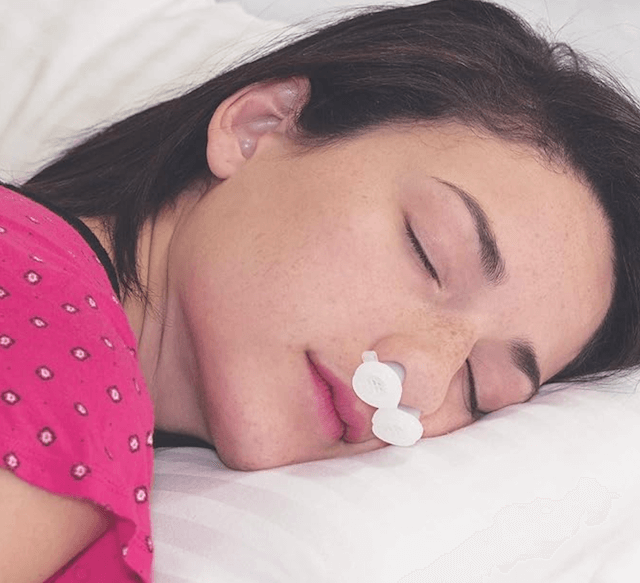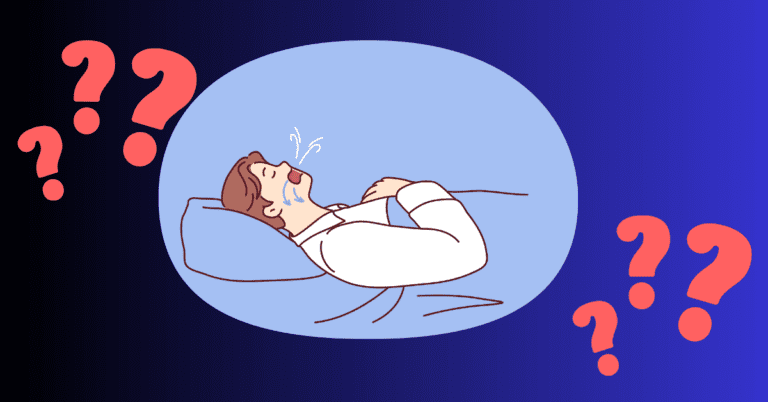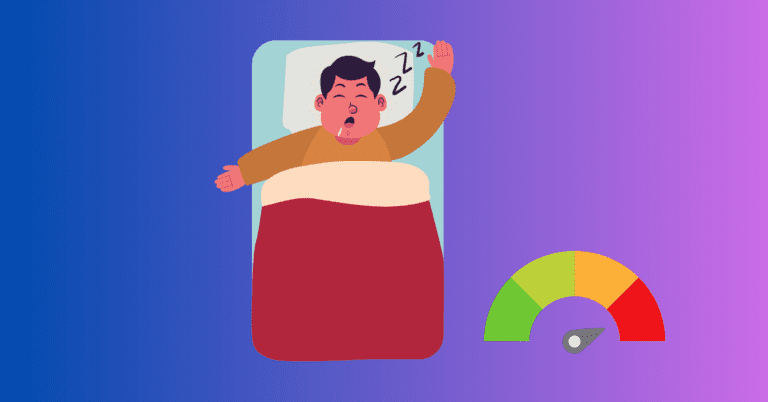What is a CPAP Titration Study?
Jeremy Smith is a long-term CPAP user and sleep apnea advocate. After being diagnosed with severe obstructive sleep apnea, he created ByJeremySmith.com to help others navigate CPAP therapy through personal stories, gear reviews, and practical advice.
If you’ve been diagnosed with sleep apnea, there’s a good chance you will be asked to undertake a CPAP sleep titration study.
This follow-up sleep study helps fine-tune your CPAP (Continuous Positive Airway Pressure) therapy, ensuring the machine is set to the proper pressure levels to keep your airway open throughout the night.
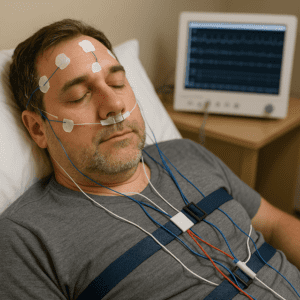
While I didn’t need to undergo a titration study myself, my experience with CPAP therapy has shown me how essential it is for achieving restful sleep and improved health.
In this article, we’ll dive into what a sleep titration study involves, why it’s essential, and how it fits into the treatment process for sleep apnea.
What Is a Sleep Titration Study?
A sleep titration study is an overnight sleep study conducted in a sleep lab. The goal is to find the correct air pressure for your CPAP machine to keep your airway open and prevent the blockages that cause sleep apnea.
During this study, you’ll sleep with a CPAP mask while a sleep technician monitors your breathing patterns, oxygen levels, and heart rate.
The CPAP machine will deliver varying levels of air pressure, which is adjusted throughout the night based on your individual needs. The data collected from the study helps the sleep specialist determine the optimal pressure settings for your CPAP machine.
Although I didn’t undergo a titration study, I can understand the importance of this step. Getting the pressure right can make a world of difference in the effectiveness and comfort of your therapy.
Why Is a Sleep Titration Study Important?
A sleep titration study is crucial because it ensures that your CPAP machine delivers the correct air pressure to prevent apneas and hypopneas (partial blockages). Too much or too little air pressure can make CPAP therapy ineffective, uncomfortable, or both.
Here’s why it’s important to get this study done:
- Maximizes Effectiveness: A titration study aims to fine-tune your CPAP machine, ensuring that it prevents breathing interruptions while you sleep.
- Increases Comfort: CPAP therapy works best when it’s comfortable enough for you to use every night. Adjusting the pressure helps the titration study avoid issues like discomfort from too much air or ineffective treatment from too little.
- Improves Health Outcomes: Effective CPAP therapy has a significant impact on overall health. It can reduce the risk of serious conditions like high blood pressure, heart disease, and diabetes, as well as improve quality of sleep and energy levels.
My Titration Experience
Using a CPAP machine transformed my sleep, even without a titration study. Getting the correct settings is key to ensuring you wake up feeling rested and energized, which I experienced once my therapy was calibrated correctly.
For me, I undertook a home-based sleep test, which gave me a slightly shocking diagnosis of severe obstructive sleep apnea.
Shortly after I went to the sleep lab to pick up my new CPAP machine, and looked forward with a sense of uneasiness to the coming night.
When I got to bed and put the mask on, it felt weird putting this thing on my face, but I knew I had to get used to it. There seemed to be too much pressure. But as this was the first time I had used it, I wasn’t sure if it was a question of me having to get used to it.
I must have fallen asleep, but the following day, I woke up feeling that my heart and lungs had been fighting all night.
So I called the sleep center, took the machine in, and they turned the calibration down one unit. The next night, it was perfect, and it has been for the last five years.
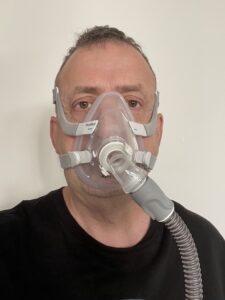
This is me with my CPAP mask on. Forgive me if I’m not smiling 😀
What to Expect During a Sleep CPAP Titration Study
If you’re scheduled for a sleep titration study, the process will be similar to your initial diagnostic sleep study. Here’s what you can expect:
- Preparation: You’ll arrive at a sleep lab in the evening, bringing your sleep essentials like pajamas and toiletries for an overnight stay. The room is set up like a typical bedroom to help you feel comfortable.
- Fitting the CPAP Mask: A sleep technician will fit you with a CPAP mask, which may cover just your nose or both your nose and mouth. The fit is important, as it needs to be secure but comfortable for effective therapy.
- Monitoring: Sensors will be placed on your body to monitor your brain activity, heart rate, oxygen levels, and breathing. The CPAP machine will start at a low air pressure setting, and the sleep technician will adjust the pressure throughout the night.
- Results: In the morning, the data collected will be analyzed to determine your therapy’s ideal CPAP pressure settings. Your sleep specialist will use this data to program your machine for optimal treatment.
While I didn’t undergo a titration study, I can imagine how reassuring it would be to know that your therapy is being tailored to your specific needs.
Why CPAP Settings Matter
The correct CPAP settings are vital for your treatment’s success. If the pressure is too low, it won’t effectively prevent apneas, meaning you’ll still experience disrupted sleep. If the pressure is too high, it can cause discomfort, leading to difficulties in adhering to CPAP therapy.
By undergoing a sleep titration study, you’re ensuring that the CPAP machine is providing just the right amount of pressure to:
- Keep your airway open throughout the night
- Minimize apneas and hypopneas
- Improve oxygen levels and prevent desaturations
While CPAP therapy can be life-changing, getting the settings right is what makes it work best. Once your machine is calibrated, as mine was, the difference can be remarkable. You start waking up feeling refreshed and ready for the day instead of groggy and exhausted.
What Happens After a CPAP Titration Study?
Once your titration study is complete, your sleep specialist will review the data and set your CPAP machine to the ideal pressure settings. From there, you’ll begin using the machine at home with the confidence that it’s fine-tuned to work specifically for you.
Here’s what you can expect after the study:
- Starting CPAP Therapy: Your machine will be set up with the correct pressure, and you’ll start using it every night.
- Follow-Up: Your doctor may schedule follow-up appointments to check on your progress and adjust settings if necessary.
- Continued Monitoring: If you notice any changes in your symptoms or if your weight or health conditions change significantly, your CPAP settings may need to be reassessed.
Although I didn’t have a titration study, I did have my CPAP machine adjusted after some trial and error. It’s a process of finding what works best for you, and once you get it right, the results can be life-changing.
Conclusion: Why a Sleep Titration Study Is Key for Effective Sleep Apnea Treatment
A sleep titration study is a crucial step in customizing your CPAP therapy. Ensuring that the machine is set to the correct pressure for those with obstructive sleep apnea can significantly improve comfort and effectiveness.
While I didn’t undergo a titration study, I experienced the profound benefits of having a well-calibrated CPAP machine. Once the settings were correctly adjusted, I noticed a massive improvement in my sleep quality and daytime energy.
Whether you undergo a titration study or adjust your CPAP settings through other means, this step ensures that your treatment is working at its best. It’s all about finding the right balance; when you do, the difference is night and day.
Do you have any questions about sleep titration studies? If so, please comment below.
Disclaimer: The content on this blog is for informational and educational purposes only and is not a substitute for professional medical advice. Always speak with your doctor or sleep specialist before starting, stopping, or changing any treatment or therapy related to sleep apnea or CPAP use.
